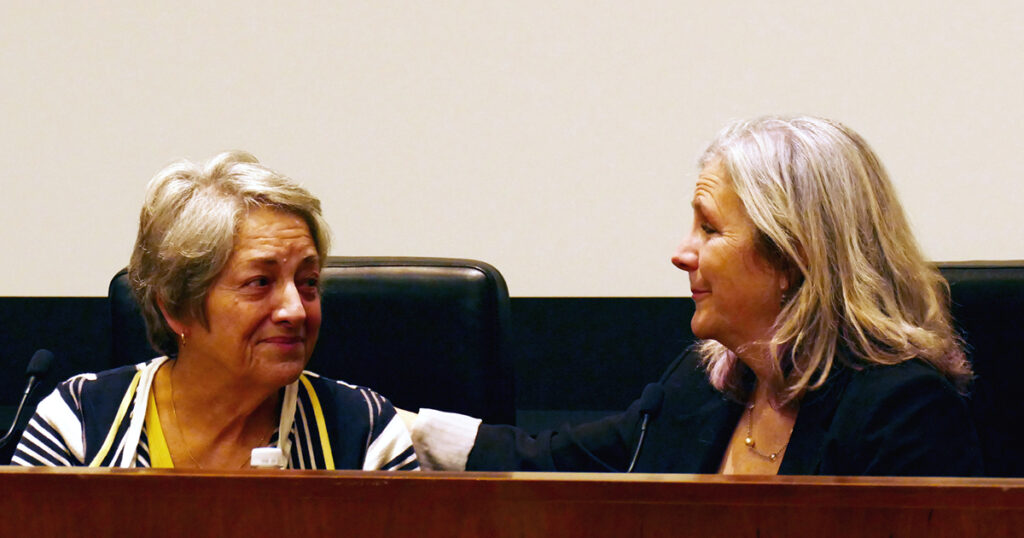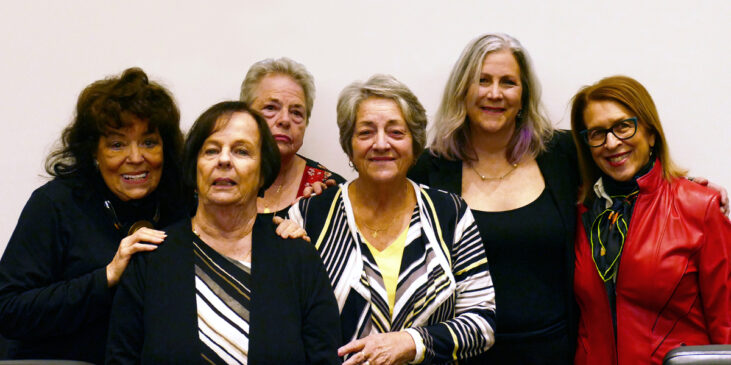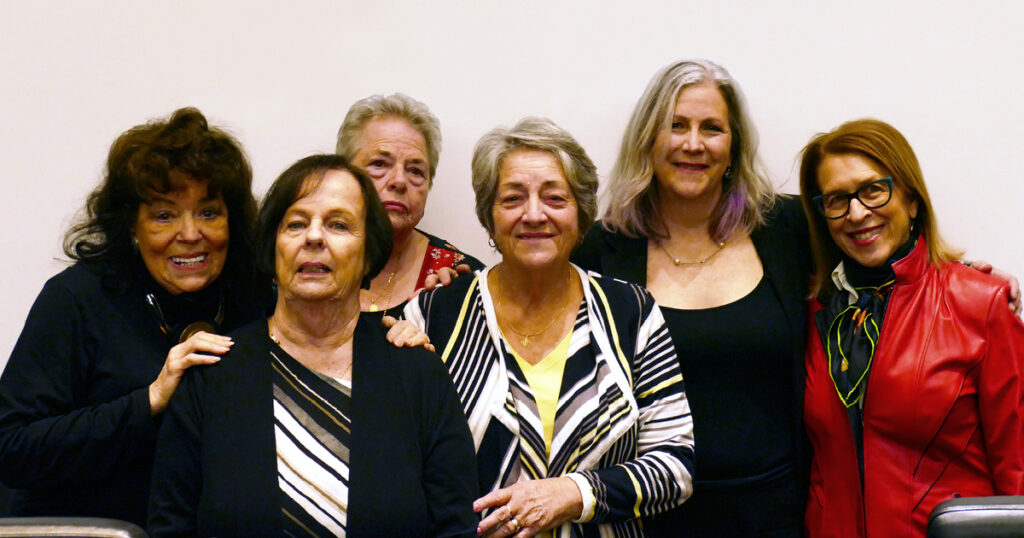
On Wednesday, March 20, the Wilf Impact Center for Public Interest Law hosted a screening and panel discussion of Radioactive: The Women of Three Mile Island, an award-winning documentary about the worst commercial nuclear accident in U.S. history. The event was co-sponsored by the Center for Justice & Democracy (CJ&D) at New York Law School (NYLS) and the Forum on Life, Culture & Society (FOLCS) at Touro University.
NYLS students, faculty, staff, and community members gathered in the auditorium to watch the compelling documentary alongside its creator and subjects. For the next hour and a half, attendees were transported back in time, witnessing the Three Mile Island accident unfold through the eyes of the courageous women who lived through it.
The women-led panel, moderated by FOLCS, featured Heidi Hutner, Director of Radioactive and Professor of Environmental Humanities at Stony Brook University; the four “Concerned Mothers” whom the film follows: Linda Braasch, Joyce Corradi, Beth Drazba, and Paula Kinney; and Joanne Doroshow, Executive Director of CJ&D and an NYLS Adjunct Professor who took the local community’s case to the U.S. Supreme Court as a young attorney.
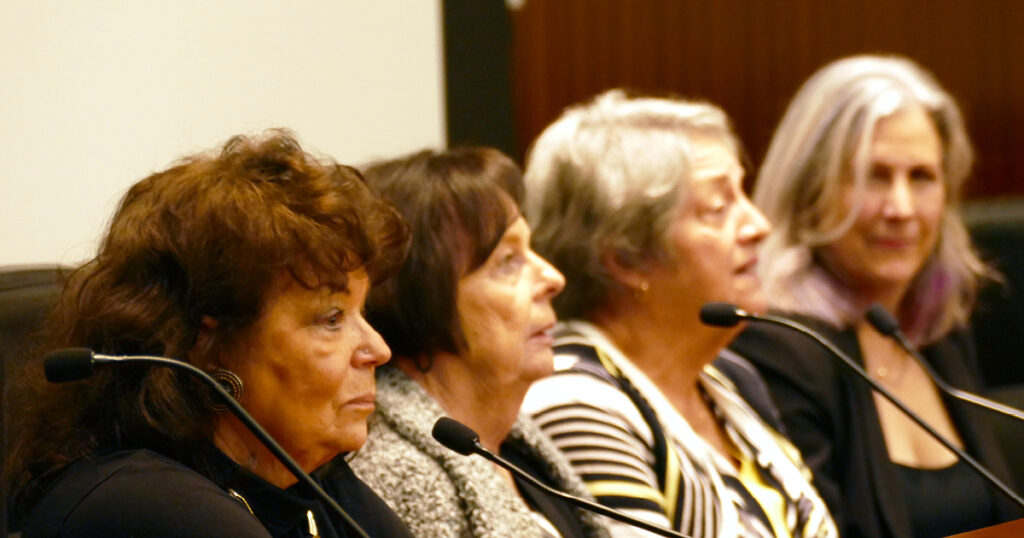
The Three Mile Island (TMI) accident occurred on March 28, 1979, when a radioactive gas plume was released near Harrisburg, Pennsylvania, due to a core meltdown in the Unit 2 reactor (TMI-2) of the TMI Nuclear Generating Station. Despite insistent government reassurance of minimal health risks, subsequent investigations revealed that the meltdown released 22 million curies of xenon over a 100-mile radius. Aaron Datesman, Former Senior Detector Engineer at NASA’s Goddard Space Flight Center, estimated that those closest to the gas plume suffered a level of exposure equivalent to 50-to-100,000 X-rays. Many residents also reported symptoms consistent with radiation poisoning. Following the accident, the Nuclear Regulatory Commission (NRC) suspended operations of the plant’s Unit 1 reactor (TMI-1).
The Concerned Mothers spent the next few years tirelessly advocating for accountability from the plant operator, General Public Utilities (GPU), by engaging local officials and NRC members. On how the four women connected, Kinney told attendees: “Every meeting I went to, I would see them. They’d have the NRC or GPU at the different [meetings]…It was very clear that they were either lying, or they didn’t know what they were doing; neither one was very comforting. We decided we had to do something.”
Although the Concerned Mothers fiercely embodied perseverance throughout their yearslong fight against GPU, Drazba revealed that they perceived themselves quite modestly. “[The government was] always trying to do little things to separate our power. The ironic thing is, we did not see ourselves as powerful. We were just moms trying to get the truth of if our kids were going to get sick or not.”
In 1981, the NRC held hearings for the proposed reopening of TMI-1. At the time, Professor Doroshow served as lead counsel and spokesperson for the Concerned Mothers and TMI Alert, an anti-nuclear community group. During this time, GPU was convicted of falsifying data on radioactive water leaks within TMI-2 that occurred shortly before the accident. It was also around this time that the NRC reopened hearings after plant operators who required relicensing were caught cheating on their licensing exams. Despite GPU’s misconduct, the NRC voted 4-1 for TMI-1 operations to resume.
Reflecting on these events, Hutner expressed the belief that the nuclear energy industry “wants to pretend that what they’re doing isn’t incredibly dangerous.”
On behalf of the Concerned Mothers and TMI Alert, Professor Doroshow filed a brief with the Supreme Court to stop the TMI-1 restart, which Justice William Brennan granted. Dashing the community’s brief sense of hope, the Supreme Court ultimately overturned the grant in an 8-1 vote.TMI-1 resumed operations the next day.
Sitting beside Hutner and FOLCS Executive Director Thane Rosenbaum, Professor Doroshow recalled the reversal for attendees. “I knew we were going to lose, because, like many courts, that court is loathed to second-guess the NRC,” she said. “[Public officials] had no authority to stop this. This was entirely the decision of five commissioners who were sitting in Washington, DC.” Here, Professor Doroshow referenced the Atomic Energy Act, which bars state-level government input on matters of radiation and radiological health.
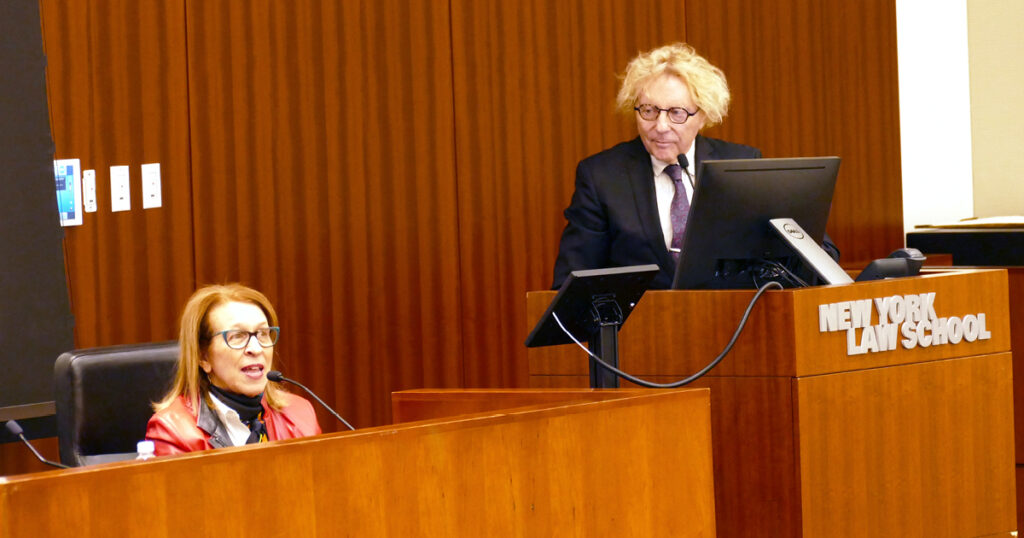
Kicking off the audience Q&A, an environmental lawyer sought the panel’s advice for advocates and law students aspiring to represent communities that have been similarly impacted by injustice.
“What it took for me was perseverance, and not giving up in the face of people that I knew were suffering a grave lack of integrity,” answered Professor Doroshow. “As long as you are confident in that, and you know you’re right, I think that you can’t go wrong.”
